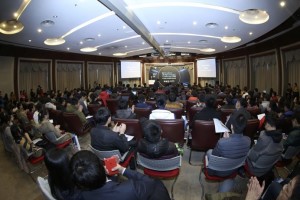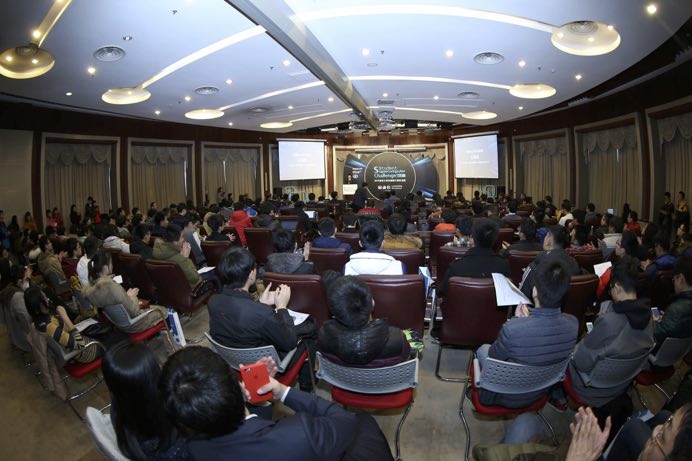 The ASC Student Supercomputer Challenge (ASC16) Training kicked off in Beijing on January 26. First initiated and organized in China, ASC16 has gained support from experts and technology organizations in US, Europe, and Asia. With a goal to inspire more innovative applications in various fields, it has attracted more and more talent to supercomputing and has greatly promoted communications in the HPC community throughout the world. Within 5 years, the ASC Student Supercomputer Challenge has become the world’s largest supercomputing hackathon.
The ASC Student Supercomputer Challenge (ASC16) Training kicked off in Beijing on January 26. First initiated and organized in China, ASC16 has gained support from experts and technology organizations in US, Europe, and Asia. With a goal to inspire more innovative applications in various fields, it has attracted more and more talent to supercomputing and has greatly promoted communications in the HPC community throughout the world. Within 5 years, the ASC Student Supercomputer Challenge has become the world’s largest supercomputing hackathon.
To date, 175 teams from 148 universities around the world have signed up for the competition. On the list, there are teams from well-known universities like the Massachusetts Institute of Technology (US), Imperial College London (UK), the University of Hamburg (Germany), Nanyang Technological University (Singapore), the Australian National University, and Tsinghua University, which is the champion of all three world’s largest supercomputer contests, ASC15, ISC15, and SC15.
ASC16 announced details of the Preliminary Contest at the launch. The competition incorporates HPCG (High Performance Conjugate Gradients), an ocean model MASNUM_WAM, and a deep learning algorithm DNN (Deep Neural Network). Students will be asked to design a high performance computer system that optimizes applications under 3000W and submit the result and the code by March 2. Only 16 teams could enter the final round that will be held in Huazhong University of Science and Technology in April in Wuhan, China.
The ASC16 Preliminary Contest is designed to reflect the latest trends of the supercomputing technology, with the focus shifting from peak flops to computational efficiency, and innovations emerged from traditional applications. ASC has always focused on combining latest technologies and practical applications. Since its first launch in 2012, the contest has covered 18 applications in 10 fields, ranging from materials to life, the earth, astronomy, energy, finance, etc. What’s more, the “e Prize” encourages students to utilize the fastest computer or the latest supercomputing skills to optimize cutting-edge applications. This has further sparked students’ interests in innovation. In the previous contests, the students successfully optimized a financial risk analysis model, a frontier algorithm for petroleum exploration, and the core data processing software of an international science engineering project SKA (Square Kilometer Array) telescope. Student teams have greatly increased computation performance and the efficiency, helping to promote the development of the related scientific research and engineering applications.
Wang Endong, one of the initiators of ASC, Chinese Academy of Engineering, and Chief Scientist of the Inspur Group, says that supercomputing is developing faster than ever, that the applications have expanded in more fields, and that supercomputing, big data, and cloud computing will merge into a new model of “big computing.” In fact, ASC’s continuing innovation over the years has exposed college students to a wide range of applications, helping them better understand how supercomputing creates innovations in various fields, and therefore cultivating highly skilled supercomputing talent.
Xu Xiaodong, the Vice President of Huazhong University of Science and Technology, views supercomputing as a leading scientific research tool. He says that its talent cultivation should be systematically designed, which involves discipline setting, textbook reform, instruction models, and career development, and therefore requires the attention and support across the society. Huazhong University of Science and Technology has always emphasized the combination of frontier technologies and talent cultivation. They believe co-hosting ASC16 will help students learn about the latest supercomputing technology, and promote exchange among young talent in China and the world.




